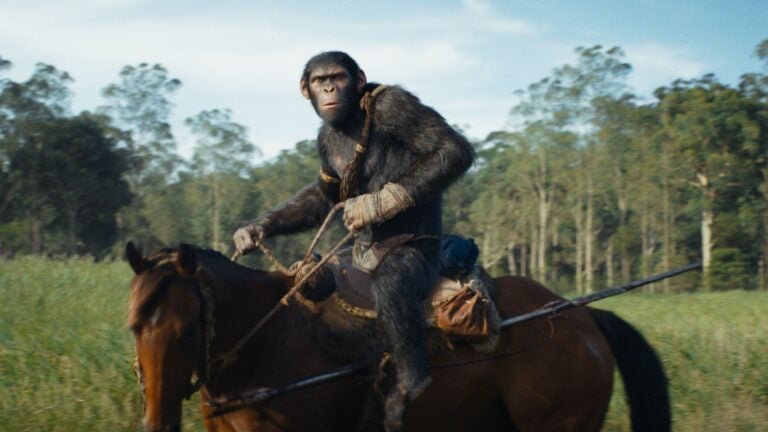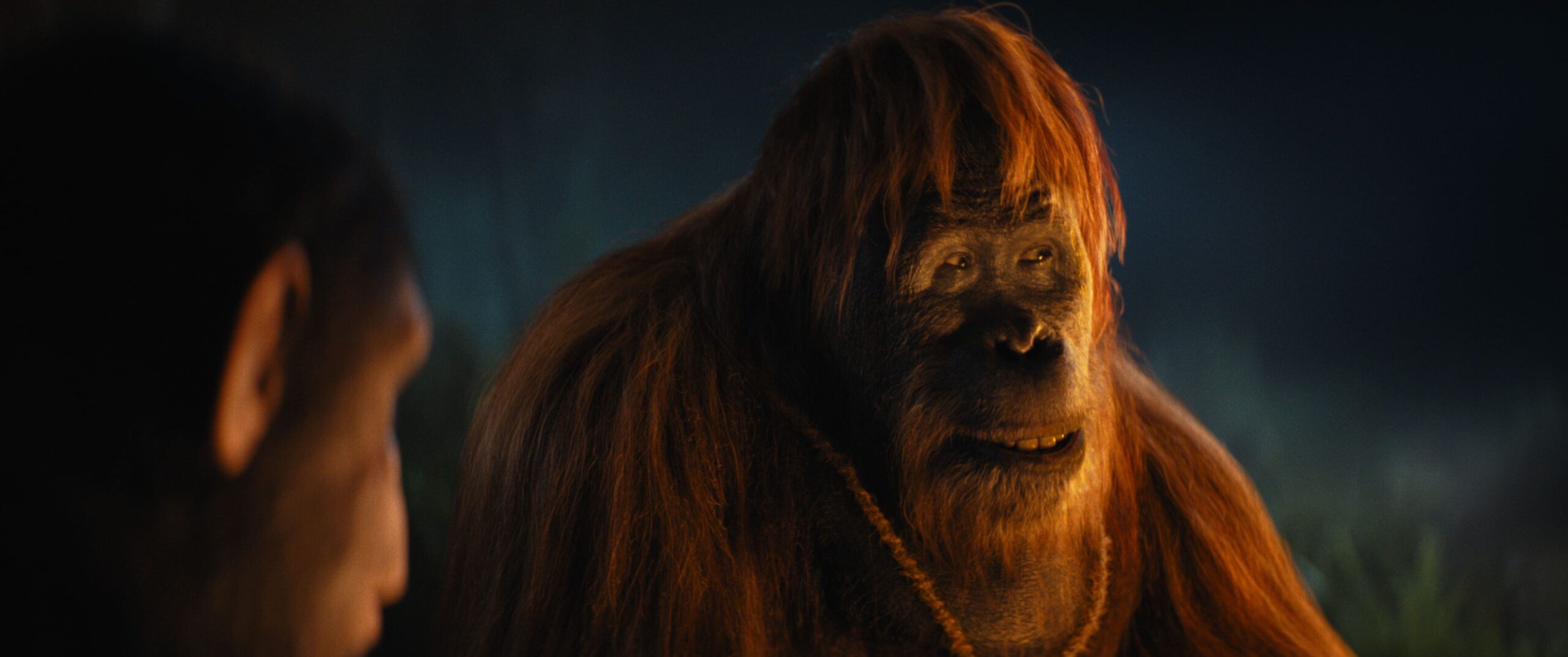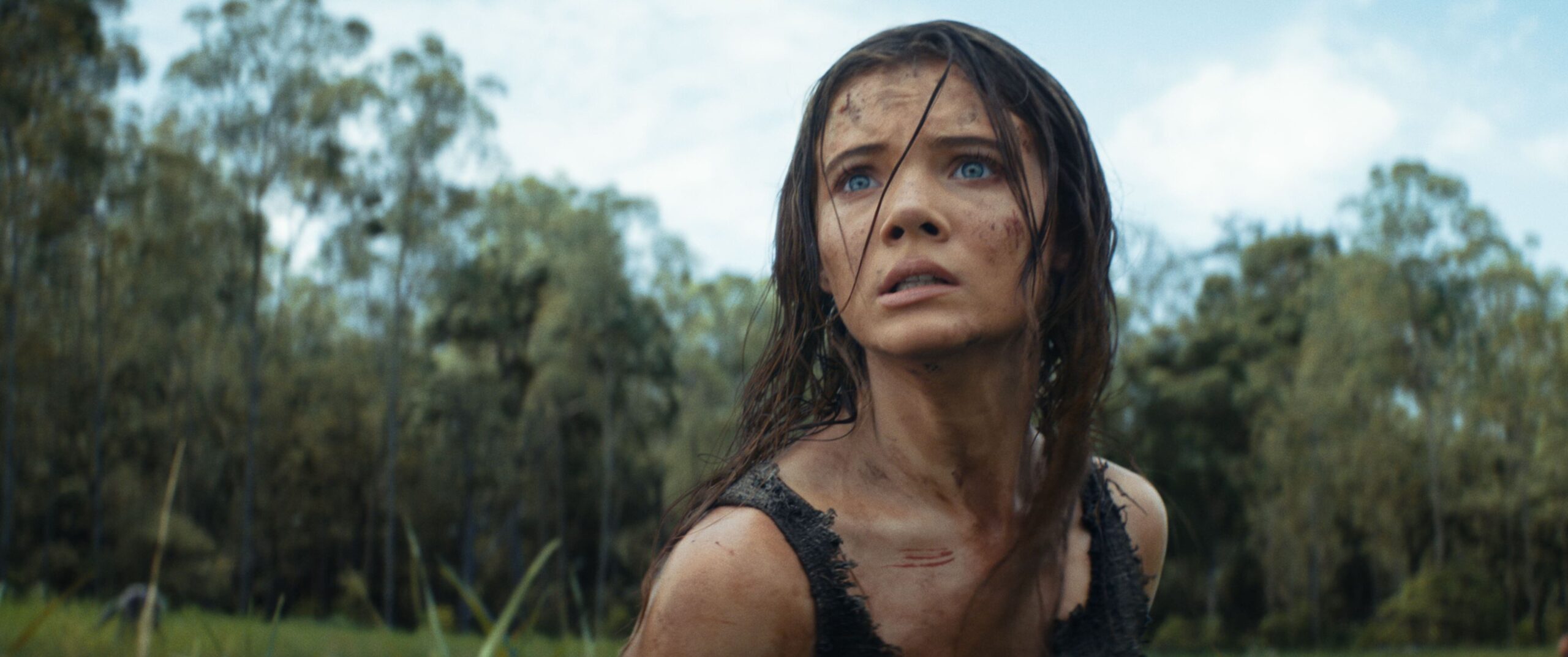Need weekend plans?
The best things to do around the city, delivered to your inbox.

In a decade that was dominated by the Marvel Cinematic Universe, the Planet of the Apes trilogy was quietly one of the best movie franchises of the 2010s. After a seven-year break, “Kingdom of the Planet of the Apes” proves that there’s still plenty of intrigue to be found in the simian-dominated world first introduced in the 1963 novel by Pierre Boulle.
Set generations after the events of the most recent three films in the franchise (2011’s “Rise of the Planet of the Apes,” 2014’s “Dawn of the Planet of the Apes,” and 2017’s “War for the Planet of the Apes”), “Kingdom of the Planet of the Apes” introduces us to a tribe of apes who aren’t even aware that humans were once Earth’s dominant species.
The decades-long question of whether humans and apes can coexist is a non-issue for these primates, who can go their entire lives without seeing a man (which they fittingly call “echoes”). Instead, this tribe has built symbiotic relationships with the bird of prey native to their valley, and the film begins with a trio of juveniles carrying out a rite of passage — stealing a hawk, eagle, or falcon egg to raise it as their own.
The motion capture technology used to imbue these apes with the emotions of their human counterparts has improved with each film. When Noa (Owen Teague, “It”) is suddenly imperiled by a tribe of rival apes, you see the fear etched in his eyes. That said, Teague is no match for motion-capture master Andy Serkis, who not only played main chimp Caesar in the first three films, but provided depth to the sub-human Gollum in the “Lord of the Rings” films.
The legacy of Caesar, who became a Christ-like figure in “War for the Planet of the Apes,” looms large in “Kingdom of the Planet of the Apes.” One of the most interesting aspects of the film is how Caesar’s words and actions have been interpreted and twisted centuries later. Raka (Peter Macon), an orangutan who hordes books like precious gems, spreads the gospel of a benevolent Caesar to anyone who will listen.

Meanwhile, a bellicose tribe of apes hunt down and extinguish any remaining trace of humanity, screaming “For Caesar!” with every swing of a club or stab of a blade. These apes are led by a vainglorious bonobo who has dubbed himself Proximus Caesar (Kevin Durand). Invoking Caesar’s name while forcing apes in his servitude into backbreaking labor, Proximus seems more motivated by the human Julius Caesar and the grand vision of the Roman Empire at the height of its power.
Director Wes Ball has plenty of experience crafting big-budget worlds thanks to his work on “The Maze Runner” series, and he provides a steady hand in taking the reins from Matt Reeves (“The Batman”). That said, there are two things missing from “Kingdom of the Planet of the Apes” that made the prior three films so effective.

The first is Caesar himself. Serkis is such a singular performer, whether as Captain Haddock in “Tintin,” Supreme Leader Snoke in the “Star Wars” series, or as Gollum. He needs to be teaching motion-capture performance classes if he isn’t already, because there’s no one like him.
The second is humanity. Maybe it’s self-centered to say, but the stakes of an ape-on-ape conflict just isn’t as exciting as a humans vs. apes battle. Humans eventually play a role in the film that I won’t spoil here, but the one human in the majority of the film, Mae (Freya Allan), doesn’t have an impact in the same way that characters like inquisitive scientist Will (James Franco) and conflicted leader Dreyfus (Gary Oldman) did.
In a movie landscape in which Disney is promising to limit its Marvel output and studios are scrambling to figure out what’s next, “Kingdom of the Planet of the Apes” offers one possible blueprint. Rather than exhaust audiences with dozens of films connected by countless branching spinoffs and streaming-exclusive shows, 20th Century Studios made a standalone trilogy, waited seven years, then launched another.
Leaving the film left me excited for what’s to come in the series. With or without the involvement of Serkis, the legacy of Caesar will hopefully animate the “Apes” franchise for years to come.
Rating: *** (out of 4)
“Kingdom of the Planet of the Apes” is now in theaters
The best things to do around the city, delivered to your inbox.

Stay up to date with everything Boston. Receive the latest news and breaking updates, straight from our newsroom to your inbox.
Conversation
This discussion has ended. Please join elsewhere on Boston.com